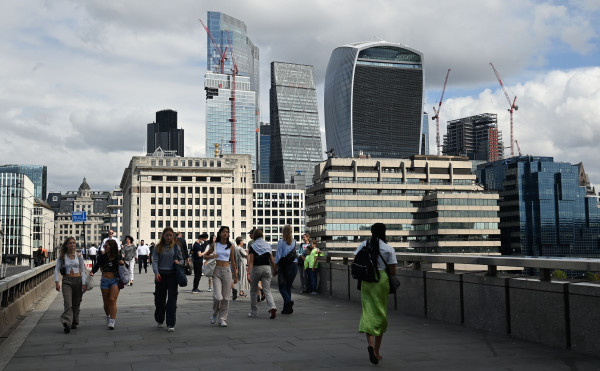The pound has plunged to its lowest levels against the dollar since 1985, as the new prime minister prepares to unveil her plan to support UK households through the winter.
The weakening of sterling reflects the mounting woes facing the UK, including the high price of energy, soaring inflation and potentially steep rises in interest rates.
The pound dropped to $1.1406 on Wednesday (September 8), according to Bloomberg data, a low not seen in more than 35 years.
The market was reacting in part to the Bank of England’s chief economist, Huw Pill, who indicated that a freeze in energy prices could force the bank to hike interest rates as a result.
While he declined to outline any specifics of the bank’s intentions or predictions of the impact of the potential cap, Pill told the Treasury Committee the bank “has work to do”.
Liz Truss will today (September 8) outline the new Conservative government’s plan to tackle the rising cost of gas, driven by a lack of supply as Russia cuts Europe off from its supplies as retaliation for the sanctions imposed over the war in Ukraine.
Reports have circulated that Truss intends to fix the energy price cap at £2,500, higher than the current £1,971 but lower than the £3,549 Ofgem said would be introduced in October.
It has been suggested that this will cost around £90bn.
No announcement has yet been made about whether businesses will be assisted with their energy costs this winter, which could cost taxpayers £40bn - £60bn over the next two years.
Director of Fairview Investing, Ben Yearsley, said tax cuts are unlikely to hit the mark this winter.
"Reform of the electricity generating sector is crucial in order to firstly reduce costs for consumers and business and secondly ensure that the abundance of renewable generating capacity in the UK can deliver low cost energy," he said.
sally.hickey@ft.com

